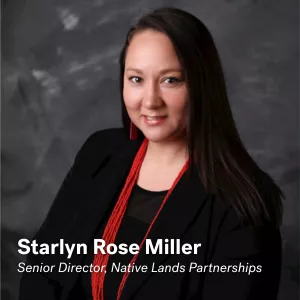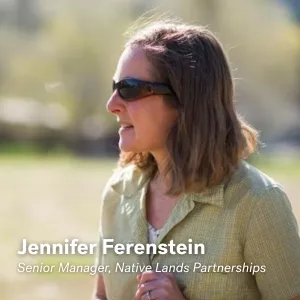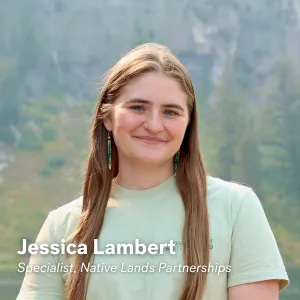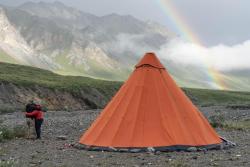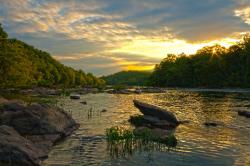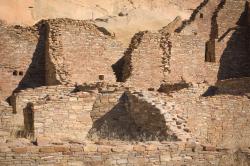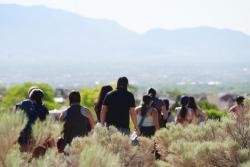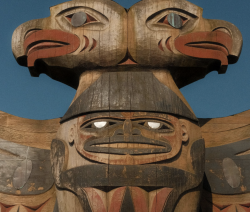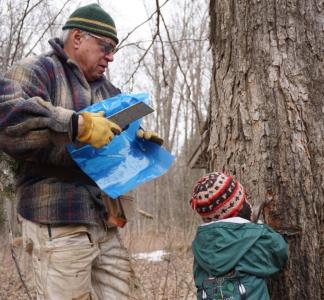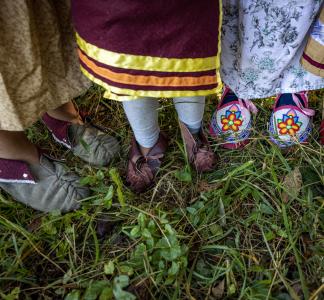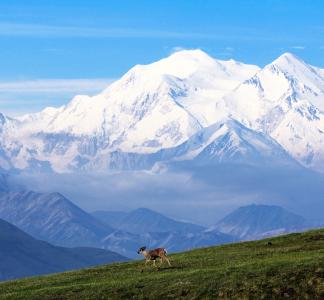Native Lands Partnerships
Strengthening conservation through Indigenous partnership
To broaden and deepen authentic partnerships with Tribal Nations and Indigenous communities, centering these partners as we strive to achieve equitable and inclusive conservation outcomes across all organizational work so that people and nature can flourish together.
As part of The Wilderness Society, Native Lands Partnerships strives to ensure Tribal Nations are included in conservation work across all campaigns.
What We Do
Native Lands Partnerships works alongside Tribal Nations and Indigenous partners to ensure sovereignty, history and knowledge guide the future of America’s public lands.
Our core areas of work include:
-
Consensus-Building
Serving as facilitators where Indigenous and conservation perspectives meet, ensuring dialogue leads to outcomes.
-
Facilitating Tribal Engagement in Policy
Creating space for Tribal voices in national and regional planning associated with public lands, such as the Northwest Forest Plan.
-
Supporting Coalitions and Partnerships
Working with Indigenous-led groups to advance shared conservation goals.
-
Building Internal Capacity at TWS
Training staff through tools like Indian Country 101 and advanced curricula to strengthen respectful engagement.
-
Expanding Tribal Access to Federal Resources
Helping Tribes overcome barriers to funding programs like the Land and Water Conservation Fund.
Native Organizers Alliance partners with The Wilderness Society to uphold our shared responsibility to protect sacred places, water, land, and the air that sustains us all. This partnership is rooted in respect for Indigenous sovereignty and in the understanding that our ancestral responsibilities to Mother Earth are inseparable from the broader movement for environmental protection.
Jennifer Fairbanks (Blackfeet/Ojibwe) Communications Director, Native Organizers Alliance
Native Organizers AllianceMason Cummings, TWS
FAQ’s
What is Tribal sovereignty?
Tribal Nations are sovereign governments that predate the U.S. Constitution. NLP’s work honors sovereignty and builds respectful relationships between The Wilderness Society and Tribal Nations.
Why is there a Native Lands Partnerships program within The Wilderness Society?
NLP strives to ensure that The Wilderness Society’s mission to protect America’s public lands is carried out in partnership with Tribal Nations and Indigenous communities, with Indigenous voices centered in conservation work.
How is NLP’s approach unique?
NLP focuses on building long-term, authentic relationships. The work is rooted in trust, transparency, and respect—not transactions. This approach makes space for Indigenous leadership in shaping conservation priorities.
Does NLP’s work align with “wilderness”?
Yes. Wilderness is central to The Wilderness Society’s identity. NLP acknowledges that the term has not always reflected Indigenous experiences, and we work to bridge conservation and sovereignty in ways that respect both.
What kinds of projects does NLP support?
NLP helps expand Tribal access to federal conservation funding, convenes Tribes and conservation partners on major planning efforts, and collaborates on issues like land return, co-management, and place names. Our work is evolving, but will always bridge the gap between conservation and Indigenous priorities.
How does NLP support other teams at The Wilderness Society?
NLP provides guidance, training, and facilitation so that Indigenous perspectives are integrated across campaigns. This includes educational tools, advanced curriculum, and one-on-one support for TWS staff on their individual work.
How do you measure impact?
NLP’s Impact is reflected in both the number and the depth of our relationships. When we partner with a Tribe or Indigenous organization, we work together over the long term to provide beneficial outcomes both for the environment and the Indigenous people who call that place home.
How can I learn more or stay connected?
Explore our resource library, sign up for occasional updates, or contact the NLP team directly to start a conversation.
